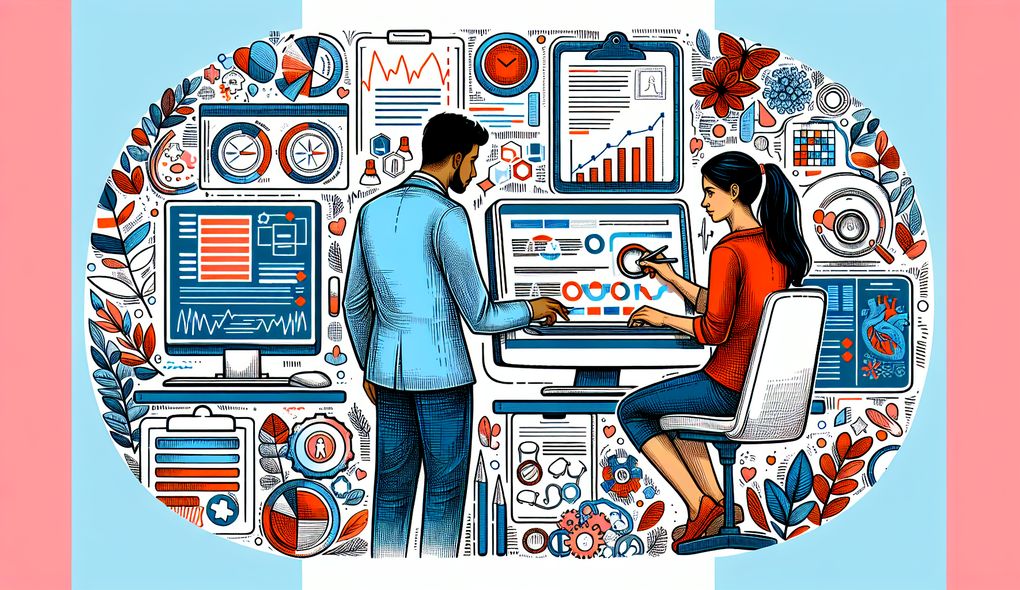Have you ever faced resistance from healthcare professionals while implementing quality improvement initiatives? How did you handle it?
JUNIOR LEVEL

Sample answer to the question:
Yes, I have faced resistance from healthcare professionals while implementing quality improvement initiatives. For example, when I was working on a project to improve medication reconciliation processes at a hospital, some nurses were hesitant to adopt the new system because they felt it would be time-consuming and burdensome. I handled the resistance by conducting one-on-one meetings with the nurses to address their concerns and explain the benefits of the new system. I also provided training sessions to help them understand how to use the system effectively. Through open communication and support, I was able to gradually overcome the resistance and gain the cooperation of the healthcare professionals.
Here is a more solid answer:
Yes, I have encountered resistance from healthcare professionals while implementing quality improvement initiatives. For instance, during a project aimed at enhancing infection control protocols in a hospital, some doctors expressed reservations about changing their routines. To address this, I organized individual meetings with the doctors to understand their concerns and provide evidence-based data on the potential positive impact of the proposed changes. I also collaborated with the infection control team to offer additional training sessions and workshops to address any knowledge gaps and increase awareness. By emphasizing the importance of patient safety and the benefits of the new protocols, I was able to alleviate their concerns and gain their support.
Why is this a more solid answer?
The solid answer provides a detailed example of resistance faced and explains the candidate's specific actions to handle it. It also emphasizes the outcome of their efforts in gaining the cooperation of healthcare professionals. However, it doesn't address all the evaluation areas, such as critical thinking and project management.
An example of a exceptional answer:
Yes, I have encountered resistance from healthcare professionals while implementing quality improvement initiatives. For example, when I was involved in a project to implement electronic health record (EHR) systems in a clinic, some physicians were resistant to the change due to concerns about increased workload and potential disruptions to their workflow. To address this, I conducted comprehensive research on the benefits of EHR systems and presented the findings to the physicians during staff meetings and one-on-one conversations. I also collaborated with the IT department to customize the EHR system according to the unique needs and preferences of each physician. Additionally, I provided extensive training and ongoing support to ensure a smooth transition. By actively involving the physicians in the decision-making process and addressing their specific concerns, I was able to minimize resistance and successfully implement the EHR system in the clinic, leading to improved efficiency and patient care.
Why is this an exceptional answer?
The exceptional answer provides a detailed and comprehensive example of resistance faced and highlights the candidate's exceptional problem-solving skills and project management abilities. It also demonstrates their ability to tailor solutions to individual healthcare professionals and effectively communicate the benefits of quality improvement initiatives. The answer covers multiple evaluation areas, including critical thinking, project management, and interpersonal communication.
How to prepare for this question:
- Familiarize yourself with common challenges and resistance healthcare professionals may have towards quality improvement initiatives.
- Research and gather evidence-based data to support the benefits of the proposed changes.
- Develop strong interpersonal communication skills to effectively address concerns and build rapport with healthcare professionals.
- Collaborate with other stakeholders, such as IT departments or infection control teams, to customize solutions and provide necessary support.
- Stay up to date with the latest industry trends and best practices to ensure the proposed initiatives align with current standards.
- Prepare training sessions and workshops to address any knowledge gaps and provide ongoing support during the implementation phase.
What are interviewers evaluating with this question?
- Interpersonal communication

